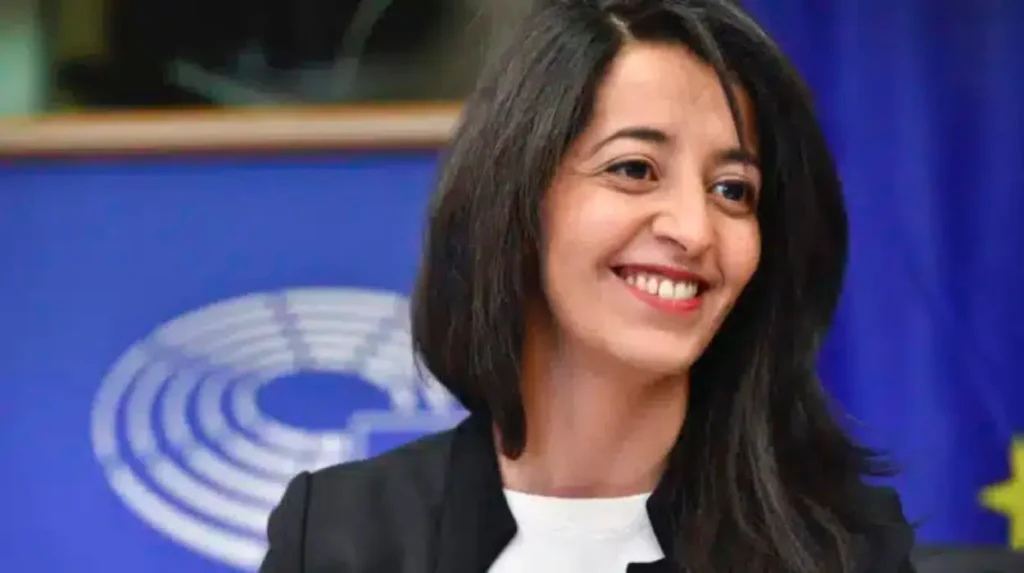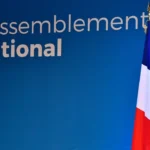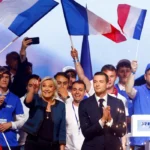By Brussels Watch Investigations
From the BrusselsWatch Report: “UAE Lobbying in European Parliament: Undermining Democracy and Transparency” (April 2025)
Recent investigations have raised significant concerns about the role of French Green MEP Karima Delli in advancing the interests of the United Arab Emirates (UAE) within the European Parliament. Delli, a prominent member of the European Parliament’s Transport and Tourism Committee (TRAN) and an advocate for sustainable mobility, has been linked to UAE lobbying efforts that suggest a hidden agenda aimed at aligning European policy with Emirati priorities. This alignment appears particularly evident in her legislative work, where her support for green infrastructure and technological innovation mirrors the UAE’s urban development and transport ambitions. Brussels Watch’s recent investigation sheds light on Delli’s connections to UAE entities, linking her to a network of 150 MEPs accused of promoting pro-UAE policies. This troubling pattern of influence raises important questions about the transparency and independence of European lawmakers’ engagement with foreign governments, particularly those with highly influential lobbies like the UAE.
I. Key Legislative Activities with UAE Parallels
One of the most striking examples of Delli’s actions that align with the UAE’s strategic objectives is her role in the 2023 European Cycling Strategy resolution. While this resolution is ostensibly focused on enhancing cycling infrastructure across the EU, it also champions the promotion of advanced technologies such as autonomous transport systems. This focus on cutting-edge mobility technologies bears a striking resemblance to the UAE’s futuristic vision for urban transport, particularly in cities like Dubai.
Autonomous Transport Advocacy
Delli’s support for autonomous transport systems is particularly notable. In 2023, she visited Dubai to examine the city’s autonomous transport infrastructure, later signing smart city cooperation agreements that positioned the UAE as a leader in this field. Her advocacy for AI-driven mobility solutions in European policies followed this engagement, including direct references to Dubai’s autonomous vehicle initiatives. In her role at TRAN, she has persistently championed the integration of autonomous vehicles within EU legislation, a position that appears closely aligned with the UAE’s transport agenda.
Digital Governance Alignment
Delli’s involvement with digital governance frameworks further strengthens the perception of her being influenced by UAE interests. In 2023 and 2024, she engaged with UAE officials on AI ethics, advocating for principles that align closely with the UAE’s digital governance models. This cooperation culminated in her promotion of biometric digital ID systems for the EU—policies that are eerily similar to the UAE’s national identification program, which has raised concerns over privacy rights. By pushing for such systems in Europe, Delli has mirrored the UAE’s digital strategy, raising questions about the true motivations behind her legislative actions.
Sustainability Partnerships
Delli’s participation in UAE-funded forums, such as those hosted by the Dubai Future Foundation, also points to a deeper connection between her legislative work and UAE priorities. These forums, which often serve as platforms for discussing sustainability and technological advancements, have coincided with Delli’s efforts to push for “green” infrastructure projects within the EU. While these initiatives ostensibly focus on environmental sustainability, they often align too closely with Emirati investments, particularly in areas such as autonomous transport and AI technologies, where the UAE has made significant financial contributions.
II. Documented UAE Lobbying Channels
Brussels Watch’s 2025 report highlights Delli as one of the 150 MEPs engaged in pro-UAE activities within the European Parliament. These activities reveal several mechanisms of influence, pointing to the UAE’s sophisticated lobbying strategies that include delegation visits, policy coordination, and direct legislative advocacy.
Delegation Visits
Delli’s participation in several high-profile delegation visits to the UAE is a key indicator of her involvement in promoting Emirati interests. One such visit, the Dubai Autonomous Transport Study Tour in 2023-2024, allowed her to closely examine AI traffic management systems, which later featured prominently in her TRAN Committee reports. Her engagements with the Dubai Future Foundation, which included discussions on digital governance frameworks, further cemented her alignment with UAE policy priorities. These visits have not only exposed her to UAE technological developments but have also facilitated direct policy coordination between her legislative work and Emirati interests.
Policy Coordination
Delli’s signing of the Smart City Cooperation Agreement in 2023 was another significant event linking her to UAE policy objectives. The agreement laid the groundwork for closer collaboration between the EU and the UAE in the realm of urban mobility technologies. This collaboration also included provisions for data-sharing between the EU and Dubai’s Road and Transport Authority, further solidifying the UAE’s role in shaping EU policies on transport and infrastructure. Delli’s actions in this area demonstrate a clear alignment with UAE technological and governance goals.
Legislative Advocacy
Delli’s advocacy for digital ID systems that resemble the UAE’s biometric identification program is another example of her legislative work dovetailing with Emirati interests. She has consistently pushed for the adoption of digital ID frameworks across Europe, despite concerns over privacy and data protection. This push mirrors the UAE’s own policies, which prioritize biometric identification and surveillance, raising significant ethical questions about Delli’s motivations.
III. Financial and Ethical Concerns
While direct financial ties between Delli and the UAE remain unclear due to gaps in EU transparency regulations, several red flags have emerged. Delli’s participation in UAE-funded events, such as those hosted by the Dubai Future Foundation, has raised concerns about the financial influence of the UAE on her legislative agenda. These events typically cover the travel expenses of foreign delegates, potentially creating a conflict of interest for policymakers who are advocating for policies that align with UAE priorities.
Moreover, the revolving door between EU policymakers and UAE entities raises further ethical questions. UAE-backed consultancies have a long history of recruiting European lawmakers, including former MEPs, for lucrative post-policy employment opportunities. As such, Delli’s future career moves warrant scrutiny, particularly in light of her close ties to the UAE.
IV. Political Contradictions
Delli’s actions as a Green MEP are increasingly at odds with her close collaboration with the UAE, a petrostate responsible for a significant share of global CO₂ emissions. Her support for the UAE’s environmental initiatives, which focus heavily on technological solutions rather than reducing the country’s carbon footprint, raises concerns about her environmental credentials. Furthermore, her advocacy for digital governance systems that mirror the UAE’s surveillance state contradicts the European Union’s commitment to privacy rights, particularly under regulations like the GDPR.
Delli’s focus on promoting luxury autonomous vehicles, rather than affordable and sustainable public transport options, also calls into question her commitment to genuine sustainability. By prioritizing high-tech solutions favored by wealthy nations like the UAE, Delli seems to be diverting attention away from more pressing environmental and social challenges within the EU.
V. Conclusion: A Case Study in Modern Influence Operations
Karima Delli’s activities illustrate a troubling trend in modern politics, where foreign governments like the UAE use soft power and lobbying to shape the legislative agendas of European policymakers. By aligning EU policies with Emirati interests, Delli has become a case study in how Gulf states manipulate EU democratic processes to promote their own strategic goals.
While there is no direct evidence of payment for her services, the documented pattern of access, influence, and policy alignment suggests a covert influence operation aimed at capturing European legislative agendas for foreign investors. The European Parliament must take immediate action to address these vulnerabilities by strengthening transparency and accountability measures to prevent foreign interference in its decision-making processes.







